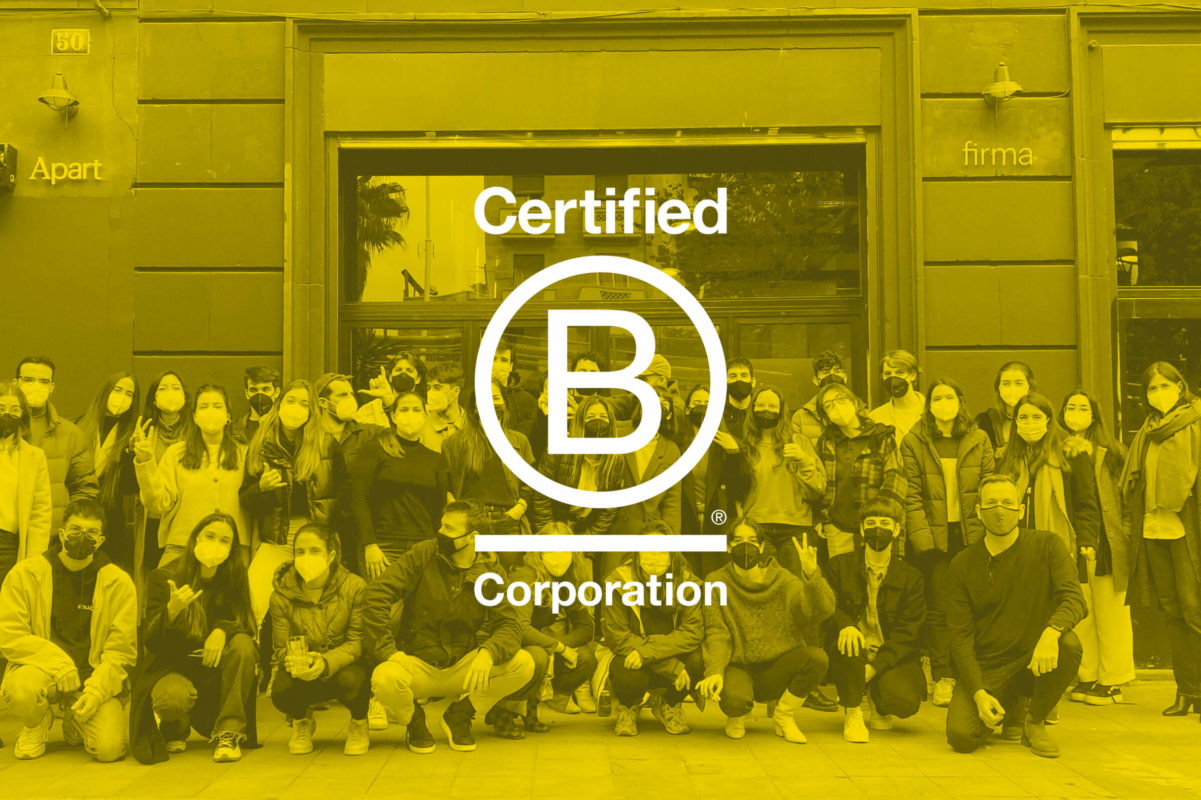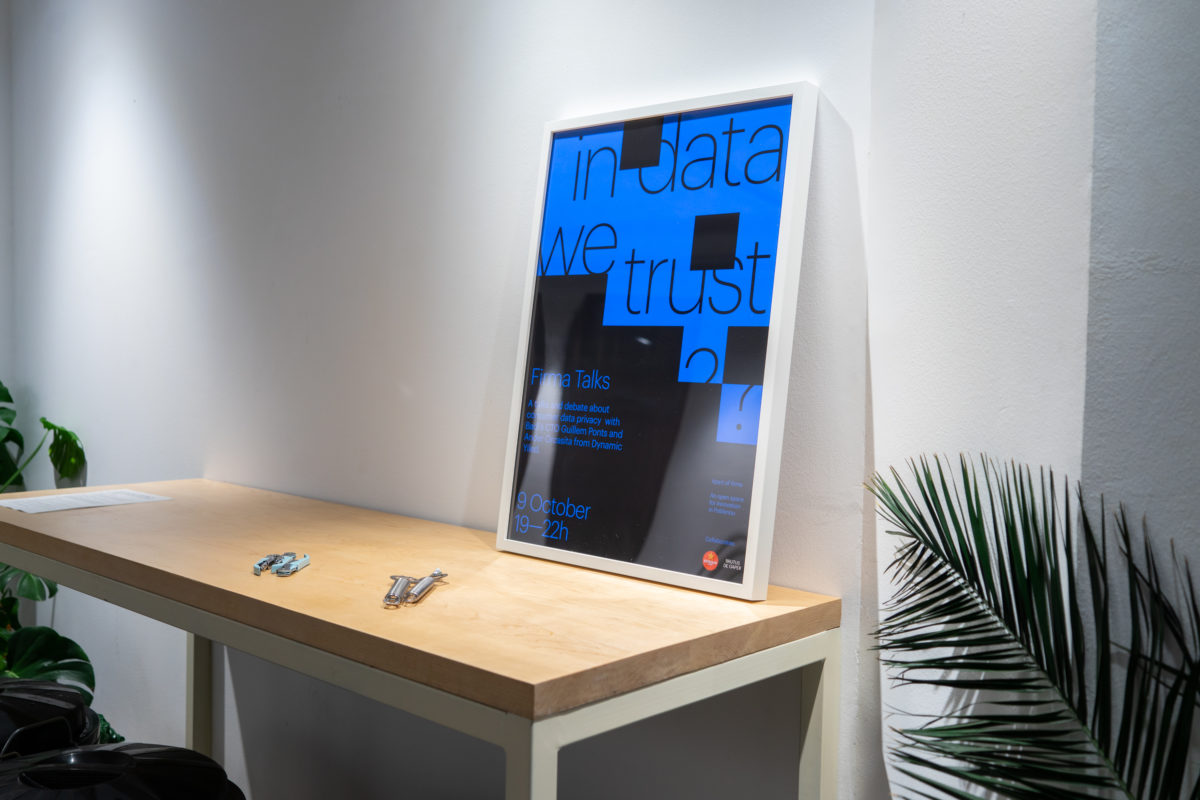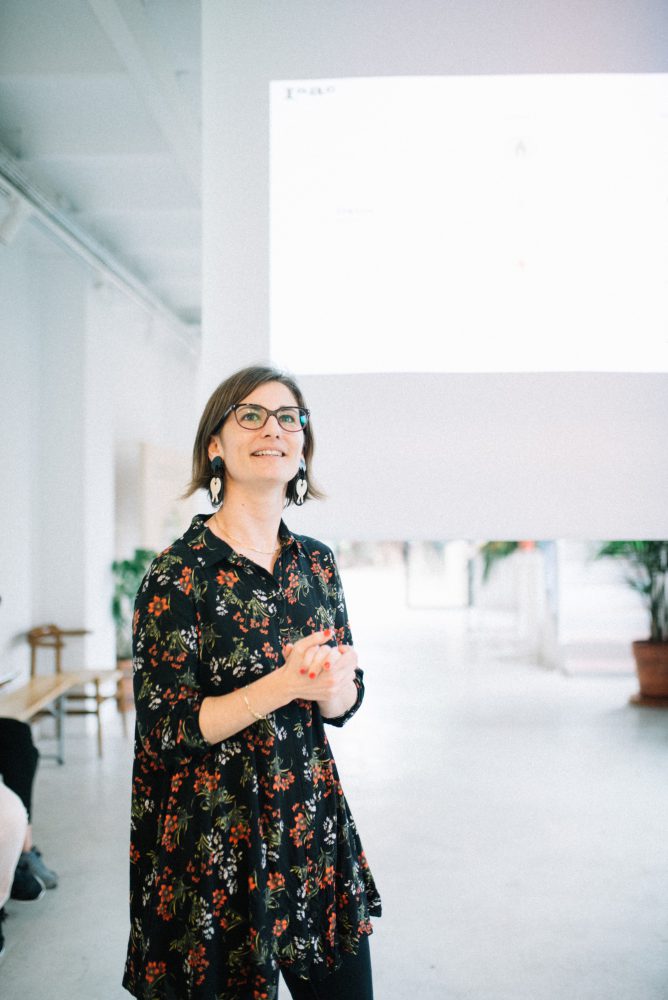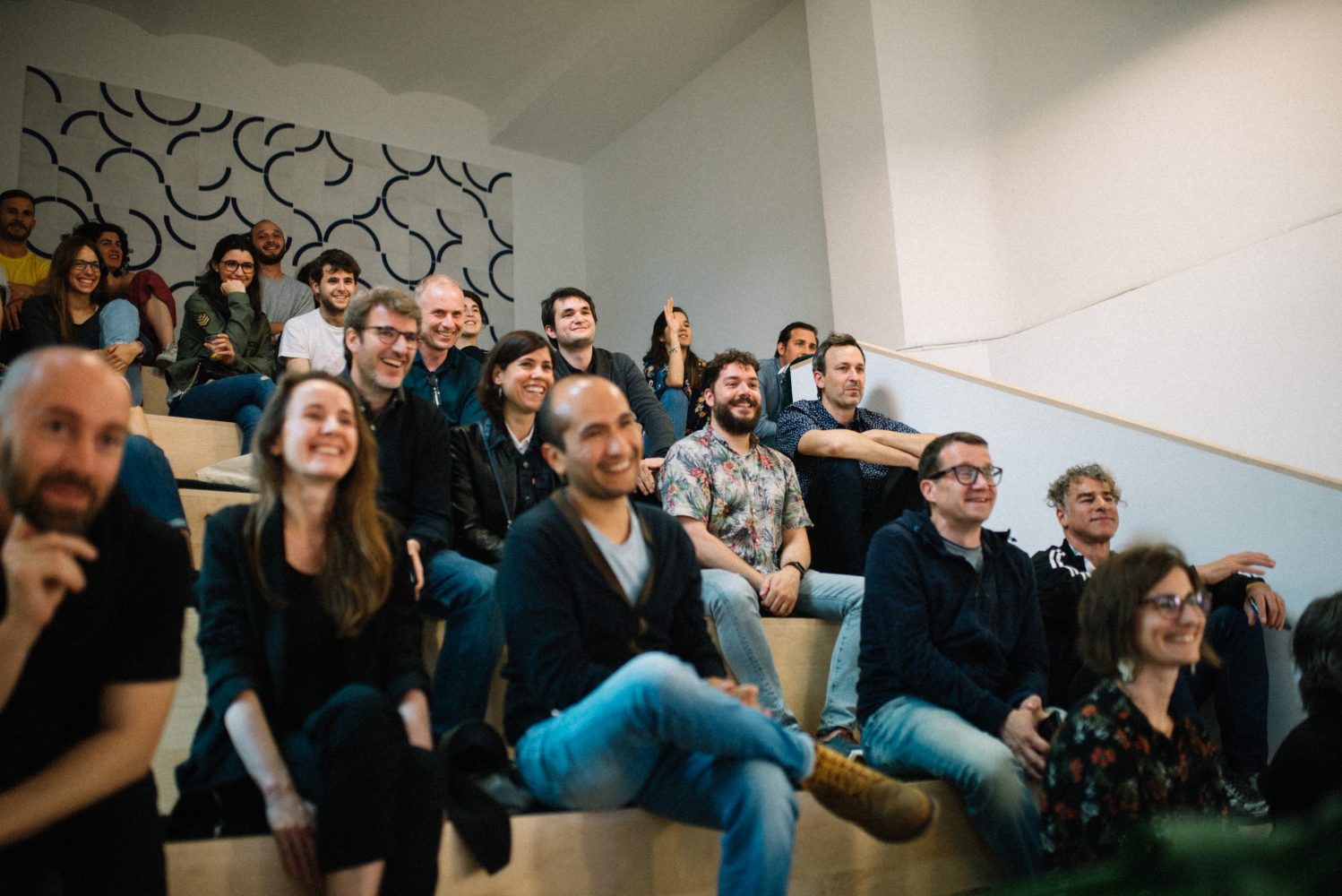By Robert A. Sampson
10 Things We Learned from Data
10 Things We Learned | 5 min read
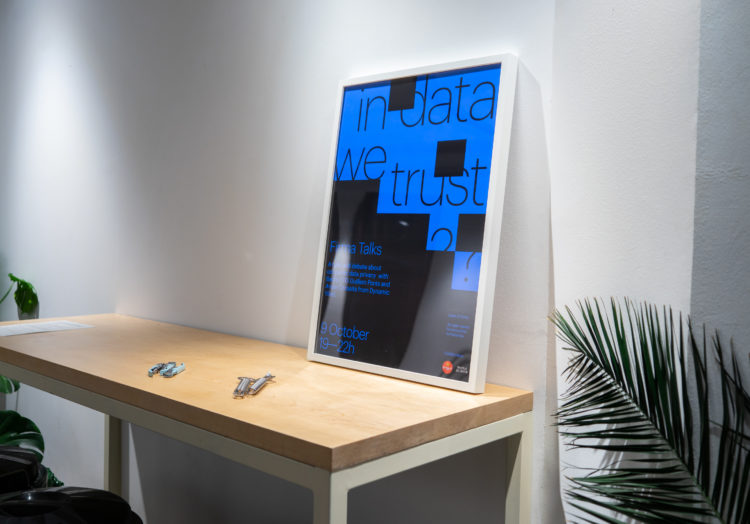
Should we be paying attention to the impact data and algorithms are having in our society?
On October 9, Firma Talks raised this question by welcoming two experts in the field. Guillem Pons, Badi’s Chief Data Officer, and Ander Orcasitas, Iberian Director for AI startup Dynamic Yield, both offered their unique and contrasting perspectives. The debate comes at a time when U.S. legislators are currently introducing bills that could land Mark Zuckerberg in jail.
Here are our main takeaways from that night:
#1: You might not have an interest in data, but data has an interest in you
Let’s start with a fun fact. 70% of all McDonald’s sales in the U.S. happen through the McAuto drive-through. This insight is one of the reasons why McDonald’s acquired Dynamic Yield in March, for USD 300 million. It’s a fascinating story of food and innovation. Ander Orcasitas shared how they could help McDonald’s increase sales by personalizing items to customers. “We could now take public information, see past purchases, decide if the car is high-end or low-end, decide if the weather is warm or cold if it’s a rush hour or not, and based on that modify the menu items to your preference.” Yes, I will have that order super-sized with an extra side of data.
#2: The future belongs to those who have predictive power
Here’s another fun fact. The top three companies in the world have no assets. Guillem Pons drew attention to this fact by pointing out the true value of Facebook, Google, and Amazon lies in the vast amount of information at their disposal. The amount of data gives these juggernauts the ability to predict behavior. “When you know a lot about a user, you can predict what they are going to do,” Orcasitas further added.
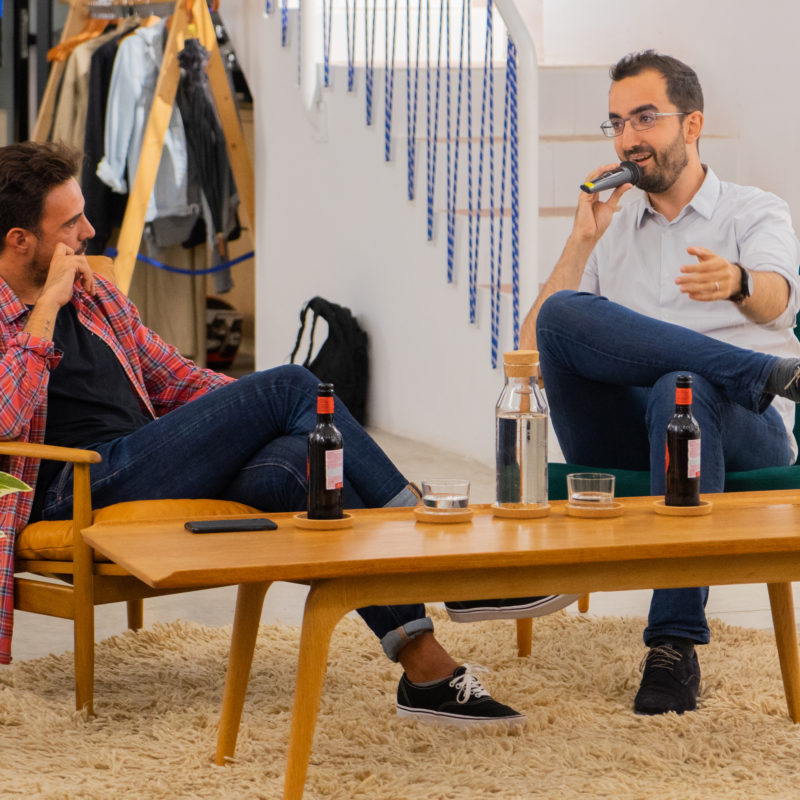

#3: Government’s are vying for a piece of the data pie
Giving your data to the government sounds like something out of an Orwellian nightmare, but it is actually part of China’s nationwide social experiment known as the Social Credit System. Imagine spending an afternoon on social media criticizing the government. The online behavior is tracked, and suddenly, your Social Credit is reduced, making it difficult for you to gain a better internet speed or worse, securing a good job or obtaining a passport. The Social Credit System will be put in practice by 2020, which sounds all futuristic but is really like two months away.
#4: The Data Revolution began the moment Steve Jobs announced the iPhone
When did this Data Revolution begin? Pons pointed to the moment Steve Jobs announced the iPhone, and the world got all heart eyes emoji over it. With the emergence of the iPhone, companies gained the ability to track every activity and every behavior anytime and anywhere. Every time you like something, that’s one data point you’re giving to Mark Zuckerberg. Someone in the crowd said Instagram has 21 billion Daily Active Users, which is, of course, impossible, unless alien galaxies are using Instagram. But still, that’s a lot of data points to do business.


#5: The Cambridge Analytica scandal exposed the real problem
What has two thumbs and helped upend democracy? This Cambridge Analytica. We are all familiar with the scandal that brought Facebook to its knees. Pons emphasized the Cambridge Analytica story because it goes to the heart of the matter. At the time, Facebook gathered a lot of data about its users, but it also gave away a lot of that data to third parties. One of these third parties was Cambridge Analytica, which took advantage of the situation to run damaging campaigns in hopes of swaying votes in their client’s favor. Clients like Donald J. Trump, who you’ve probably heard of. But here is where the real issue is. Pon’s main argument is that we need to find a way to be able to use these products without having our information sold or misused by other organizations. To get there, he argued, we need greater awareness.
#6: The next Mark Zuckerberg will come from a better framework
Maybe you have an idea for a company that aims to rival Facebook. It’s not something we recommend but if it were to happen, your best bet would be to cut off all the competition. For this, you would need the government to step in. By getting rid of competitors, government would act as a sort of protective cocoon, allowing your business to grow. Of course, creating a business to compete with Facebook is a bad idea, given that it’s virtually impossible to do. But the idea to protect smaller players through a framework would be ideal. This is one of the ideas brought up by Orcasitas. A general framework that would nurture smaller businesses to grow without having to rely or depend on the tech giants.
#7: Harness your Slow (System 2) Thinking
In the Q&A, Marc, Partner & Strategy Director at Firma, asked if we are all fools. “Are we fools for succumbing to these companies? Are we fools for giving away our information, not realizing what we are doing?” In response, Orcasitas pointed to Daniel Kahneman, the Nobel prize-winning behavioral economist who discovered heuristics and popularized System 1 and System 2 thinking. System 1 is your impulsive pleasuring seeking brain, constantly craving that dopamine kick that makes you check your Instagram feed. System 2, on the other hand, is slow, thoughtful thinking that allows you to get Ph.D.’s and Nobel prizes. Perhaps you’ve read this far in the article without checking your phone, that’s System 2 amigo. Or amiga. Orcasitas called on Kahneman to the point that GDPR and the terms and conditions are all designed to our System 2 thinking, which takes energy. So in conclusion, we are not idiots, but we do often give in too quickly to our System 1 thinking.
#8: Data Minimalism is growing, but companies also need to be held accountable
Data Minimalism is the latest digital detox trend to hit the streets, according to one of the attendees during the Q&A. Let’s call her Joanna, given that, that’s her real name. Joanna explained that Data Minimalism aims to give users greater control by doing things like clearing their search browser and opting for apps and services that don’t track and gather user data.
While this is undoubtedly a step in the right direction, Pons warned that change needs to happen from within. The companies who design these products we love to use need to separate the utility of their product, with the act of marketing and selling personal information to other companies. “The key here is awareness. Data minimalism, yes, but also have the right to choose.”
#9: We need to tear down that data barrier
Orcasitas made an articulate and persuasive argument towards socializing data. We can call it Data Communism, but it’ll probably raise a lot of eyebrows, so let’s call it a Unified Data System. Although not as cool-sounding, a Unified Data System would make information accessible to all. It’s quite similar to learning #6, but this would give startups an advantage by relying on a network of information to create better products and services. But this also raises another issue, if we socialize all the data, who gets to manage this system? I don’t have an answer but I can’t wait for the day when we hear the words, “Mr. IT man, tear down that wall.”
#10: We can nudge ourselves for good
Nudging is like hacking our System 1 to do System 2 things (see learning #7). It’s what designers did in an airport in Amsterdam by placing a sticker of a fly in the bathroom urinal to maintain clean bathrooms and save costs. Now apply that to the world of AI or Machine Learning, where models are getting increasingly better at knowing how you feel. Imagine if that information could be used for your betterment, by turning lazy or unproductive moments into something useful. This is the kind of future to aspire, where technology works in our favor, pushing us to do better to become better versions of ourselves.
We have no idea what scandals will be happening in 2050, or how data will be impacting us, but it is safe to assume that the models, the algorithms, and the predictive power of this technology will only get better. Whether we need to raise the alarm bells and hold these companies accountable to protect our rights, or whether we need unfettered access to data through a framework, will only happen by the actions we take today. Technology is fundamental to humanity, and the debate highlighted the need to integrate moral and ethical issues if we want the technology to work for us.
READING

Climate Neutral Certified
We’re proud to announce that this year we are once again Climate Neutral Certified! Over the last few years, we have implemented several actions that allowed us to start the path of becoming a more responsible and conscious business; Climate Neutral is one of the steps we're taking to accomplish this exciting goal.

We are finally a B Corp certified company!
After one year of dedication, we are finally a B Corp certified company! It has been a transformational process in which we have learned a lot and worked harder to improve our standards as a company and as transformational agents.

Uncovering CBD with Vybes founder Jonathan Eppers
We sat down with Vybes founder Jonathan Eppers to discuss the rise of the CBD industry in the US, how it's affecting branding and what's Vybes' take on the beverages category.
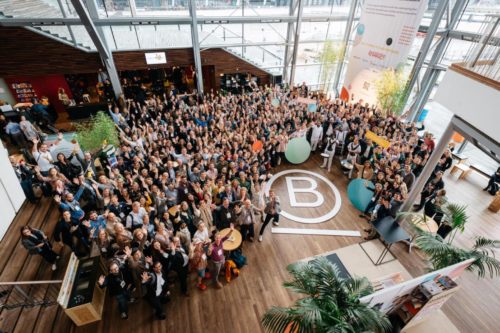
On our way to be a B Corp
After two days at the B Corp Summit in Amsterdam, I gained the inspiration, the energy, and the motivation to become a corporate sustainability activist. Activist? Oh, that sounds uncomfortable. Yes, that sounds like stepping out of the comfort zone.
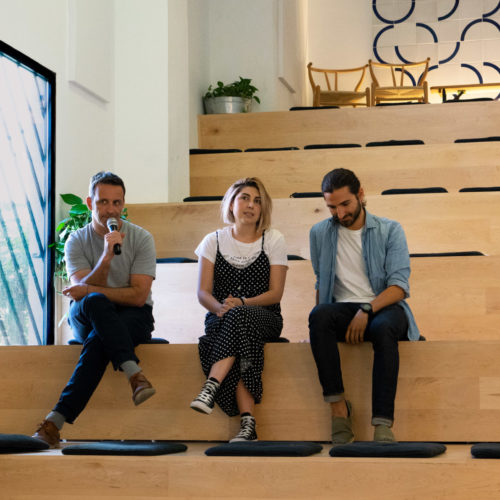
10 Things We Learned from YesFuture & Sustainn
On June 26, Firma Talks invited three experts in the field of circular design — YesFuture, Sustainn, and Go Zero Waste — to tackle one of today's biggest challenges, our waste. We sat down and listened to Olga Rodriguez from Yes Future, and Carlos León from Sustainn address different angles of cutting plastic and generating less waste.

Eddie Would Go: Committing To A Greater Purpose
Companies can be a force for good. In fact, committing to a greater purpose is a growing demand among consumers. Through this article we explore some of the 1% For The Planet members who are taking a stand.

Apart: An Open Space for Innovation
Branding and innovation agency Firma, created Apart for pushing conversations, insights and ideas forward...

10 Things We Learned from Andreu Carulla & Curro Claret
“Upcycling has more to do with the value of the material”, he said. If the value of the material is higher than when it was a product, then it is effectively upcycled.”

Focus, focus and focus
During a trip to Logroño I discovered Bar Soriano, which made me realize that focusing on a single product allows you to work it to perfection.

Fulton and the power of combining letters
Let’s start with this random name that came into my mind: Fulton. You have only read the name. Never heard of Fulton. But think about Fulton and let your brain start imagining.

When dopamine wakes you up, you’re hooked
With hundreds and hundreds of notifications that you just can’t avoid opening, the well-known FOMO (fear of missing out) comes over you

Storytelling can make or break a brand
We can all agree that everyone enjoys a good story; whether it’s telling it or listening to one…proof of it is the irrational online-streaming binge watching most of us have inexplicably given into at one time or another.

Firma at Financial Times FT1000 2018 Ranking
We are very proud to have been chosen by the Financial Times as one of the most innovative, fast growing companies in Europe for the 2018 edition of FT1000.

Let’s welcome what will come
We believe that combining innovation processes, business strategy and a creative perspective is the way to build successful brands.



